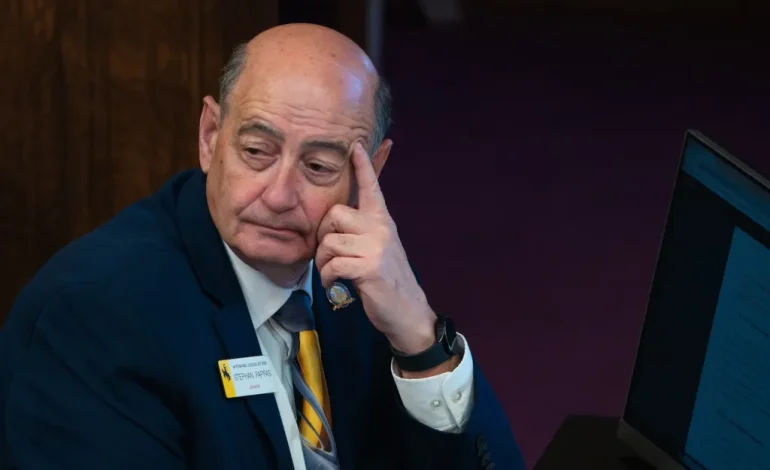A bill that would invalidate out-of-state driver’s licenses issued to undocumented immigrants has sparked debate in Wyoming’s legislature, with the House backing the measure while some senators express concerns over its potential consequences, Oil City News reports.
House Bill 116, titled “Driver’s Licenses-Unauthorized Alien Restrictions,” is a priority for the Wyoming Republican Party and the Wyoming Freedom Caucus, which advocate for stronger immigration enforcement at the state level. Sponsored by Riverton Republican Representative Pepper Ottman, the bill would direct Wyoming law enforcement to reject driver’s licenses from as many as 19 states that allow undocumented immigrants to obtain them.
While the bill passed the House without amendments, senators have approached it with more caution. Concerns have emerged regarding potential legal conflicts, practical enforcement challenges, and the broader implications for Wyoming’s participation in interstate agreements.
The Senate has a history of scrutinizing ideologically driven legislation before passage, even when lawmakers support the broader goal of immigration enforcement. Last week, senators rejected another immigration-related bill over similar concerns. As HB 116 moves forward, some senators are questioning whether the House adequately considered the bill’s impact.
One key issue is whether the legislation could violate interstate compacts that Wyoming has joined, which facilitate the mutual recognition of driver’s licenses and driving records across state lines. Senate Transportation, Highways, and Military Affairs Chairman Stephan Pappas, a long-serving Republican from Cheyenne, was among those raising this concern.
“I can’t believe it got through that whole process without anybody thinking about the interstate compacts,” Pappas said. “Now everybody is scratching their heads.”
Another potential legal hurdle is the US Constitution’s Full Faith and Credit Clause, which requires states to recognize legal documents issued by others. While Ottman argues that licenses issued to undocumented immigrants are not “valid” acts under the clause, legal challenges could arise if Wyoming refuses to honor licenses from other states.
Beyond legal concerns, some worry about how law enforcement would implement the bill. Wyoming Association of Sheriffs and Chiefs of Police Executive Director Allen Thompson noted that verifying a person’s immigration status could be time-consuming, particularly if US Immigration and Customs Enforcement (ICE) agents are unavailable.
“It’s unclear how long we can [legally] extend a stop to investigate that residential status,” Thompson said.
Many Wyoming law enforcement officials have expressed reluctance to take on immigration enforcement responsibilities beyond their existing cooperation with federal agencies. While the bill grants officers the ability to check a driver’s immigration status, it does not mandate how those checks should be handled in practice.
Wyoming’s immigration debate has led to tensions between lawmakers and advocates for the state’s immigrant communities. At a Senate hearing, Antonio Serrano, Advocacy Director for the American Civil Liberties Union of Wyoming, criticized the bill, arguing that it would send an anti-immigrant message rather than improve public safety.
“This does not make our state safer, it does not make our roads safer, it just sends a message that Wyoming is anti-immigrant,” Serrano said.
That comment prompted a response from Senator John Kolb, a Republican from Rock Springs, who insisted that the legislation was about illegal immigration, not immigration in general.
“To be clear, Wyoming is anti-illegal immigrant,” Kolb said.
Serrano countered that immigration status is more complex than often portrayed, noting that many undocumented individuals in Wyoming overstayed visas rather than illegally crossing the border. He argued that many immigrants come to the US out of necessity rather than a desire to bypass legal channels.
As the bill moves toward its third and final vote in the Senate, some lawmakers, including Pappas, have suggested postponing the issue for further study before the next legislative session. He believes more analysis is needed before taking action that could impact the state’s legal standing and law enforcement operations.
“Let’s be a little cautious and conservative,” Pappas said.









The latest news in your social feeds
Subscribe to our social media platforms to stay tuned